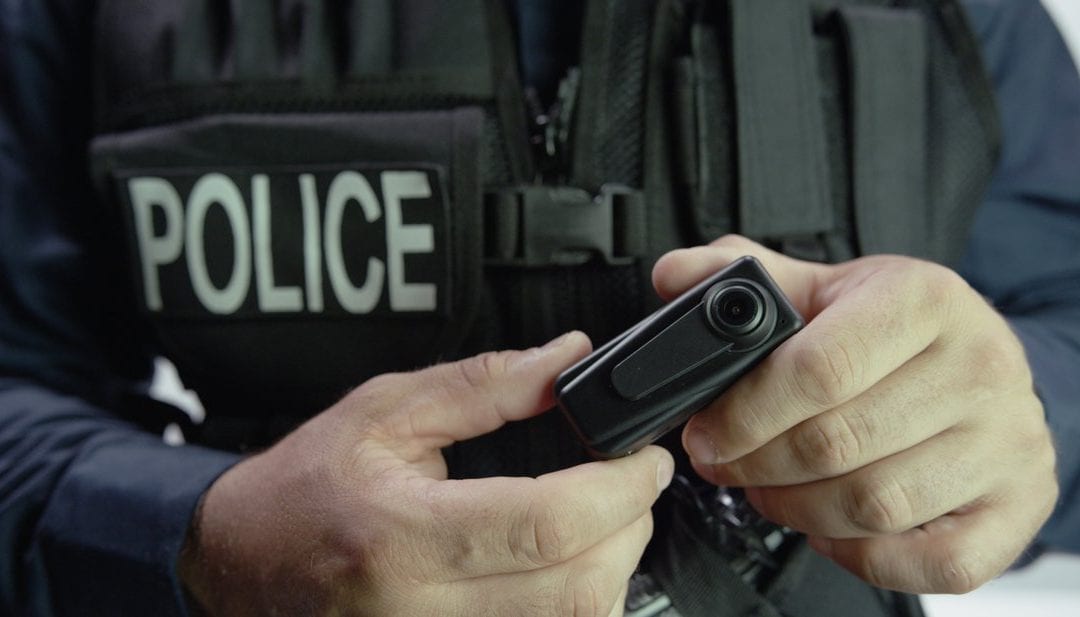My intellectual journey as a graduate student has taken a few twists and turns since I arrived in Ann Arbor, but one particular turn stands out as the definitive inflection point, permanently altering my research agenda and career trajectory. In December 2015, I began a research fellowship with the Metropolitan Police Department (MPD) in Washington, DC, where I managed a randomized controlled trial (RCT) of the department’s new body-worn camera (BWC) program. At the time, my dissertation focused on the long-term implications of severe state repression on citizens’ trust in state institutions. As a student of world politics, I naturally planned to engage in a combination of cross-national analyses and fieldwork abroad, in Nepal and Colombia. As I set off to work with MPD, I planned to keep my dissertation and my fellowship research separate. Initially, I approached the MPD position as an interesting way to take on something new and different, and as a way to help structure my time while living away from Ann Arbor.
As an embedded researcher, I had the unique opportunity to develop a nuanced understanding of police work and data at a time when issues concerning policing in the United States were particularly salient. I kept a list of policing-related research ideas that quickly grew as my fellowship went on. Though at first I wasn’t sure if or when I might be able to tackle any of these ideas, the gravitational pull of this type of public scholarship was undeniable. Actually being at MPD closed the distance between researcher and subject: for example, our BWC RCT findings would directly factor into MPD policy and decision-making. Indeed, that was the point of the study.
I found this proximity between research and impact incredibly inspiring, and it motivated me to reconsider my own personal research agenda. Empowered by the Rackham Program in Public Scholarship and supportive community partners at MPD, I was able to pursue one of the research ideas on that long list I had started. When I approached my MPD colleagues about setting up a survey experiment with both police and citizens to explore their respective expectations of police they were enthusiastic about the proposal. Working daily with MPD on the RCT had given my law enforcement colleagues exposure to the feasibility and value of applying rigorous scientific methodology, spurring their excitement and interest in additional research and evaluation opportunities.
The initial project—the largest RCT on the effects of BWCs completed to date—gave way to a longer-term partnership with the support of the RPPS grant. I quickly found myself reworking my dissertation prospectus too, applying insights from my original dissertation project to a study of the determinants of trust in the police and public perceptions of police legitimacy. By leveraging my partnership with MPD, I will be able to examine the nuances of the relationship between police and the communities they serve in a way that 1) overcomes the typical data and access issues that have historically limited political science research on policing; 2) delivers actionable input into MPD policies, operations, and community engagement efforts; and 3) puts public scholarship at the center of my research career, allowing me to keep working to close the gap between research and impact in my daily work.
The Rackham Program in Public Scholarship (RPPS) supports collaborative scholarly and creative endeavors that engage communities and co-create public goods while enhancing graduate students’ professional development. We support graduate students looking to deepen their public engagement through four core offerings: The Institute for Social Change, Engaged Pedagogy Initiative, Grants in Public Scholarship, and Rackham Public Engagement Fellowships in sites across Southeast Michigan – all to support research, teaching, and projects that reach public audiences and foster impact beyond the classroom.

